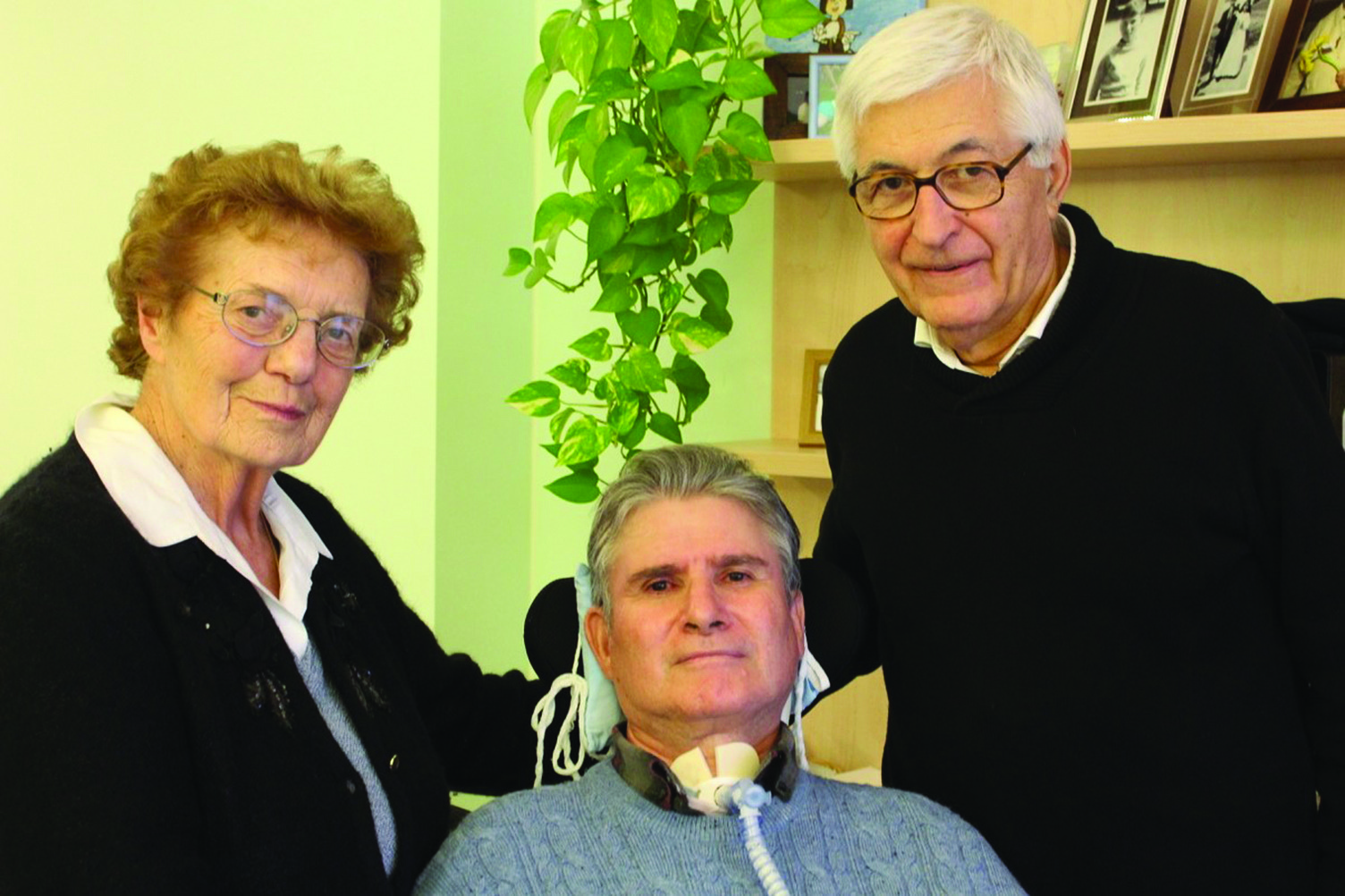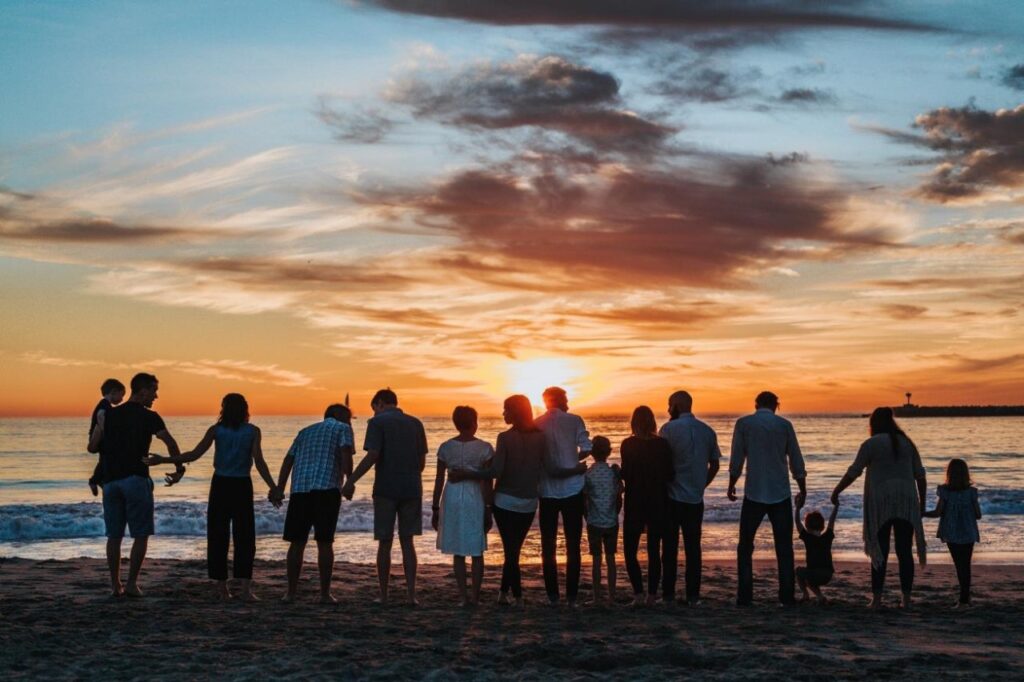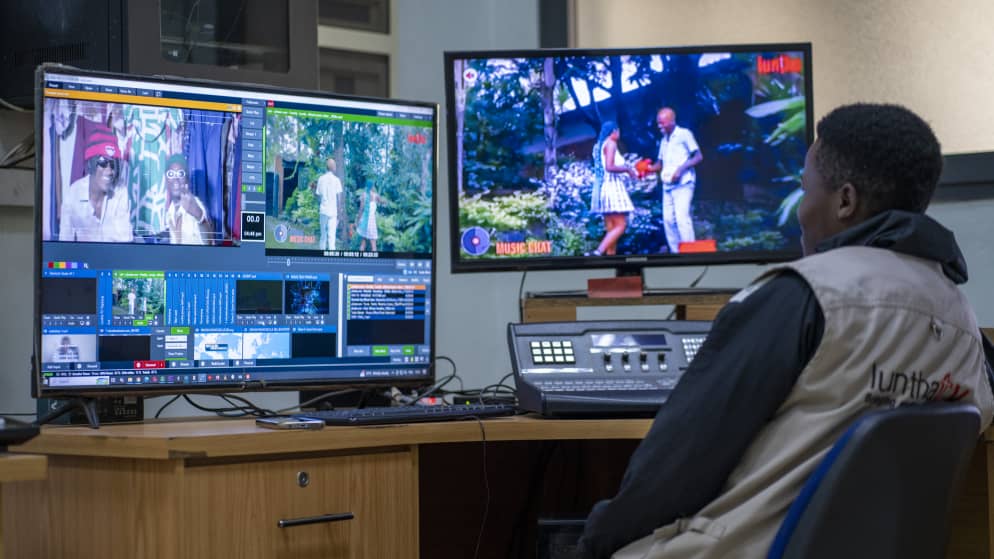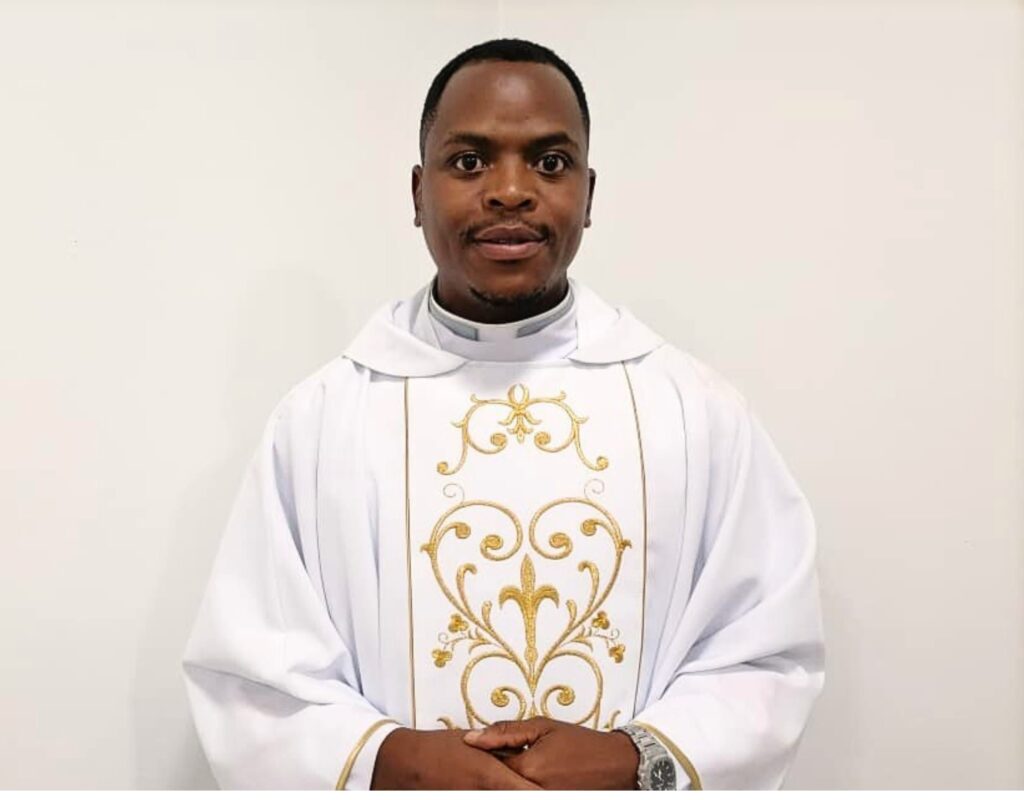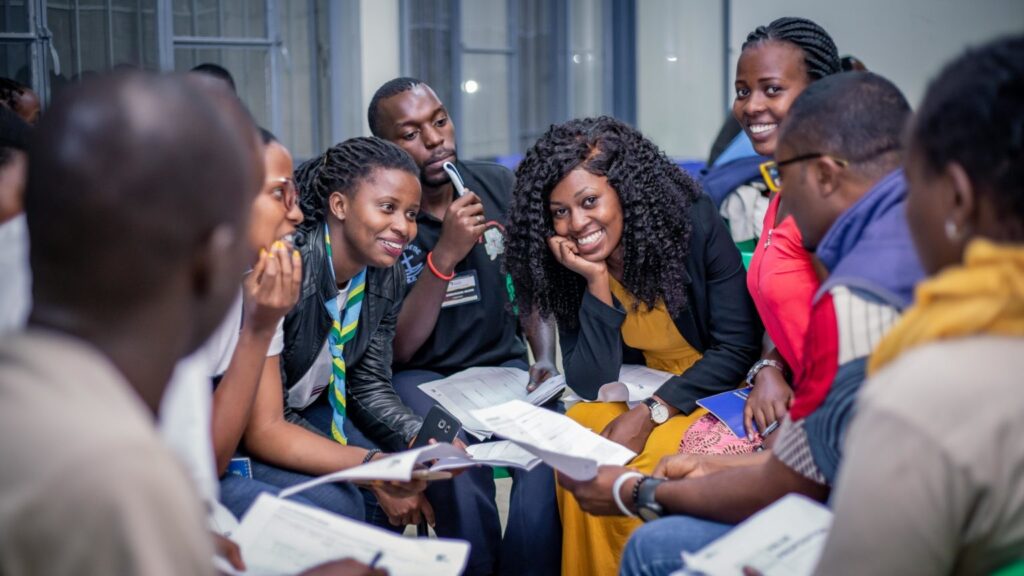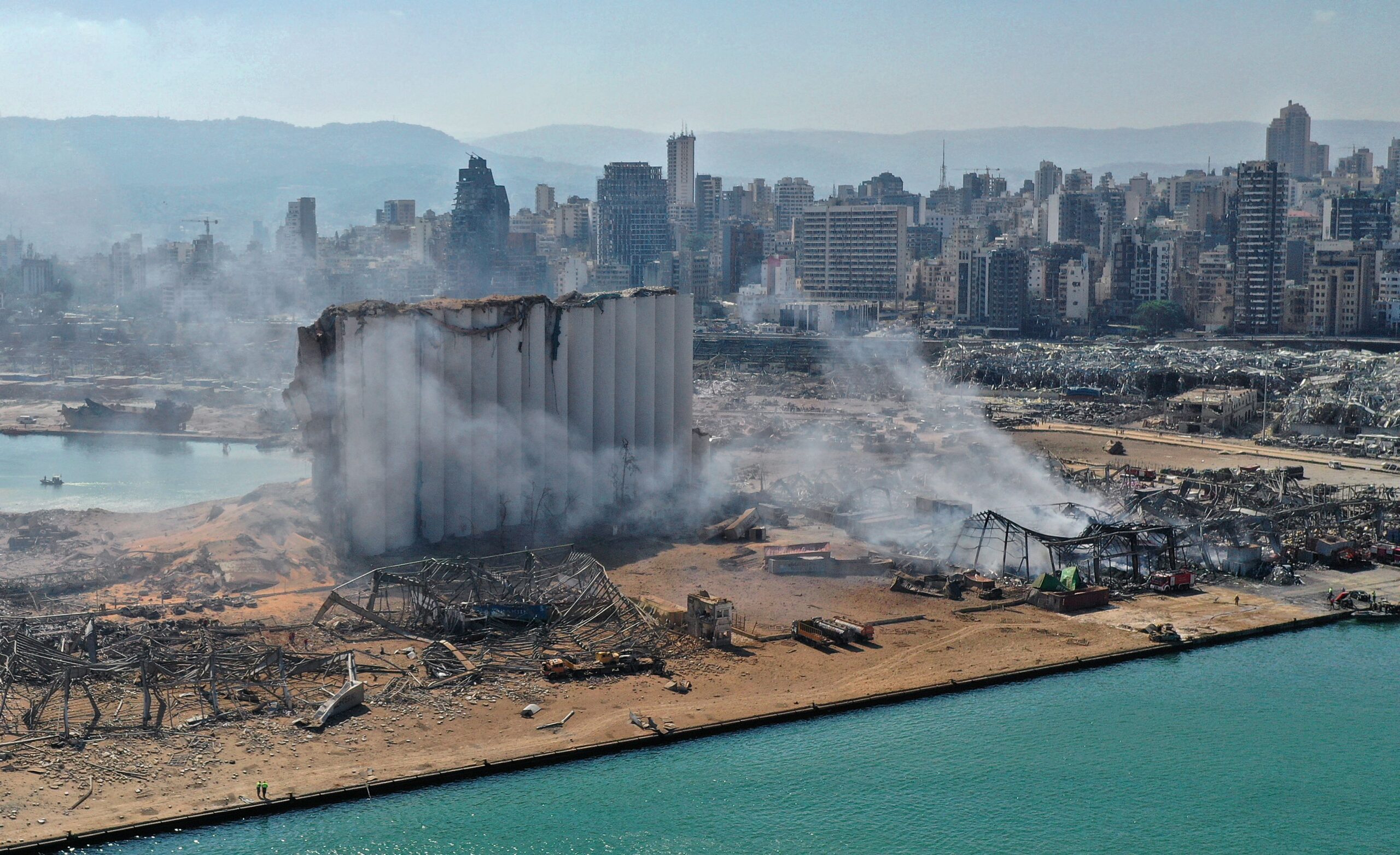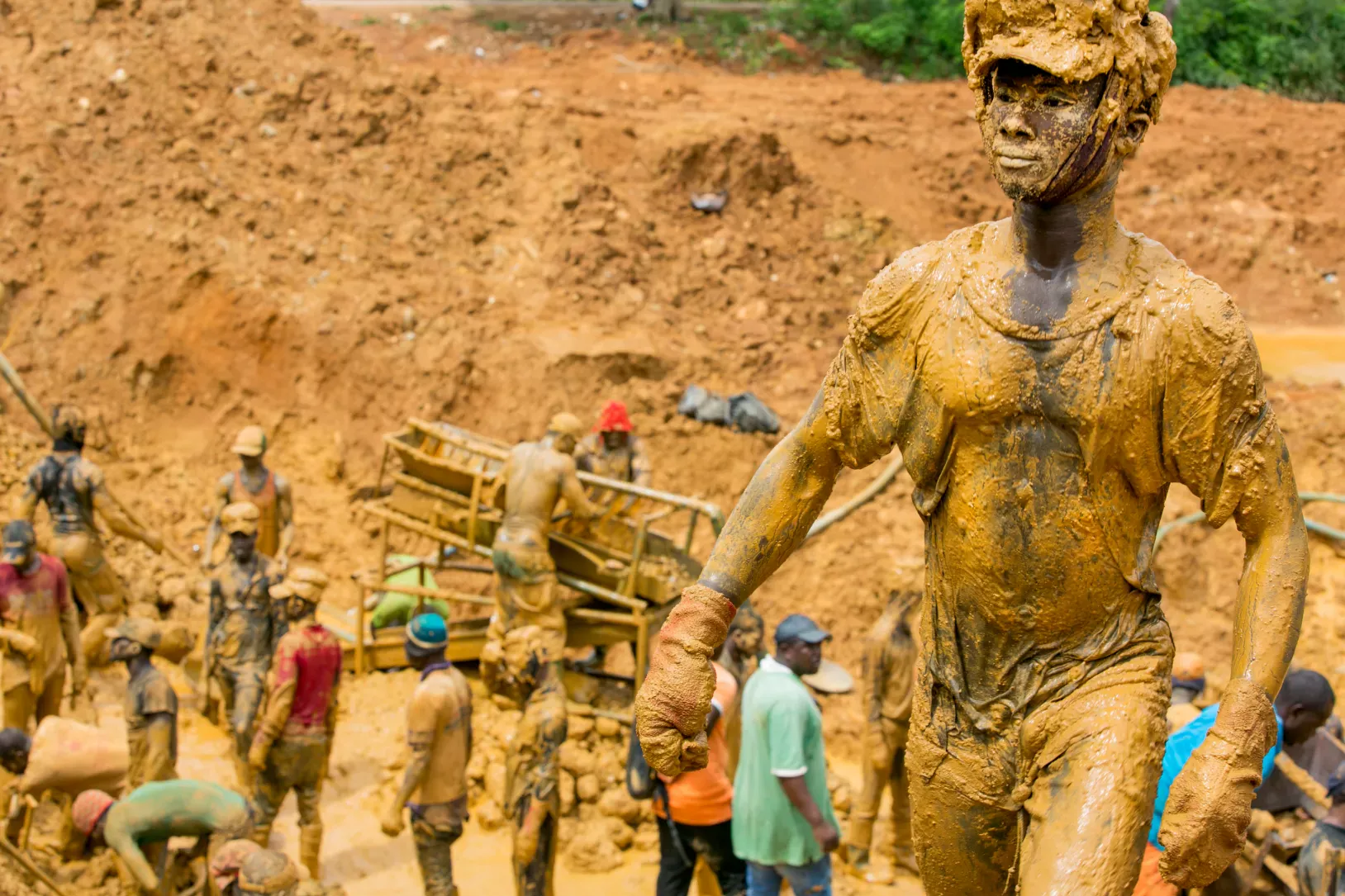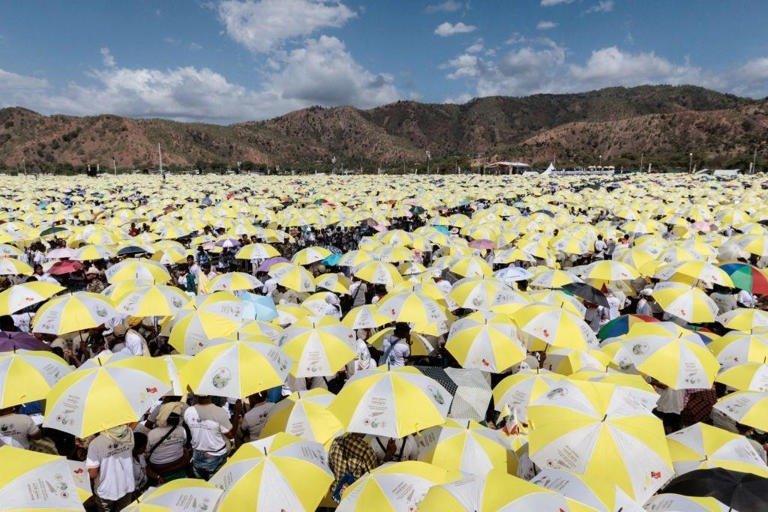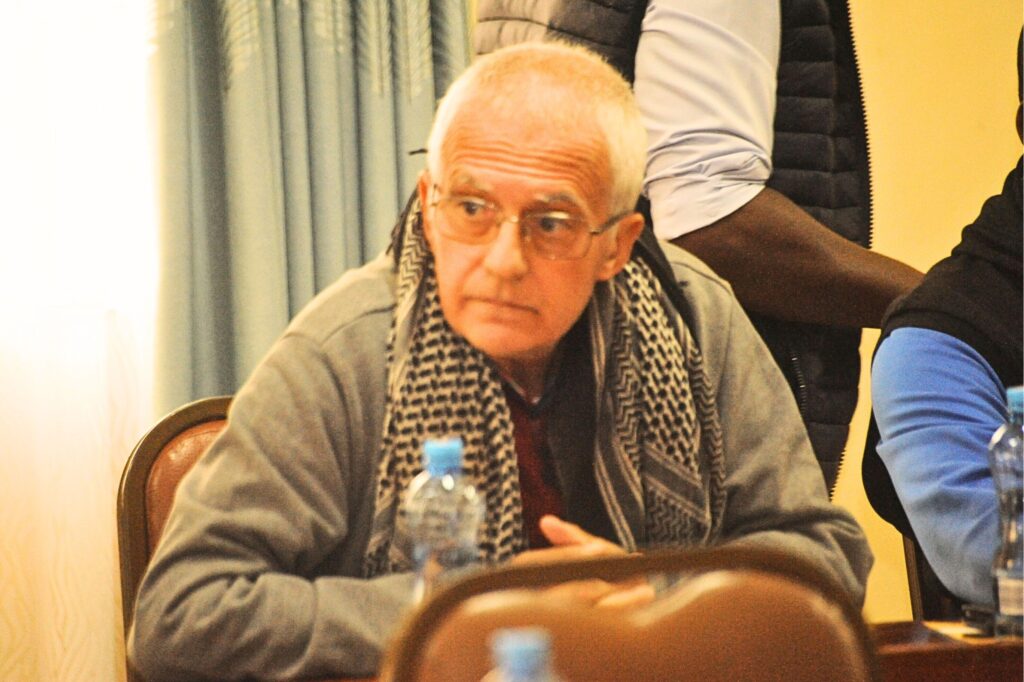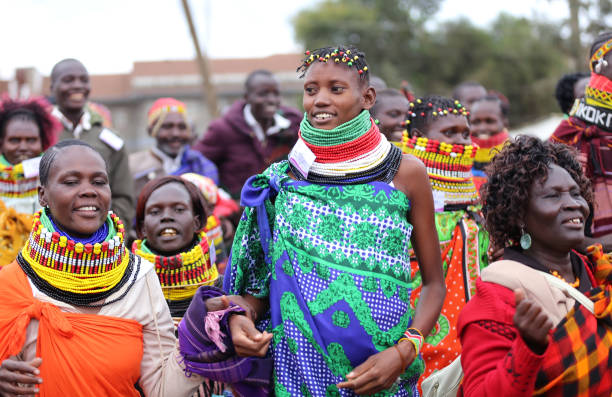“I am totally paralysed, but I feel a fullness of mind and heart that surprises me, and I dream of an accomplishment that I have not yet experienced… This wheelchair has become the best of the pulpits for me”.
By Fr. Manuel Augusto Ferreira, Mccj
Manuel João Pereira Correia was born on 27th October 1951, in Penajoia, a village on the banks of the Douro River, in northern Portugal. He entered the Comboni Institute at a young age and went through all the required training courses, in Portugal and Spain. In 1970, he took his first religious vows.
In 1973, he was in the Comboni Scholasticate in Rome for the study of theology. He still has a grateful and joyful memory of those five years. “It was an exciting time, just after the Second Vatican Council (1962-1965) and in the aftermath of 1969 Comboni Missionaries General Chapter. For the first time, I became enthusiastic and passionate of the Word of God. I was literally galvanised by it. The enthusiasm for the biblical world led me into new and thrilling worlds, such as the Jewish and rabbinical traditions, and I ‘fell in love’ with the Word, captivated by its freshness. I saw myself in the experience of Jeremiah: ‘When your words came to me, I devoured them with greed; your word was the joy and gladness of my heart’ (Jer 15:16)”.
Manuel took his final vows in March 1978, and was ordained a priest on 15th August of the same year. Soon after, the superiors assigned him to the Comboni community of Coimbra, Portugal, where, for seven years, he dedicating himself to the missionary and vocational animation of young people, and to the formation of new postulants.
 In 1985, he was sent to work in the Comboni Province of Togo-Benin-Gha-na, in West Africa. He recalls: “My first mission experience in Africa was particularly strong and exciting, in spite of the initial difficulties inherent in our mission as ‘bearers of the Word’, that is, the effort of insertion into a new culture and the study of the local language”. He continues: “The sympathy and welcome of the people and the love I felt for them made me feel good among them”.
In 1985, he was sent to work in the Comboni Province of Togo-Benin-Gha-na, in West Africa. He recalls: “My first mission experience in Africa was particularly strong and exciting, in spite of the initial difficulties inherent in our mission as ‘bearers of the Word’, that is, the effort of insertion into a new culture and the study of the local language”. He continues: “The sympathy and welcome of the people and the love I felt for them made me feel good among them”.
Fr. Manuel’s enthusiasm of his ‘first love’ was not without shadows. “My first destination was Liati, in Ghana. There I had to face the real difficulties of missionary life. The mission had about thirty communities scattered in a mostly Protestant or animist context. The communities were rather small, all characterised by poverty of means and of personnel. When I went to visit them, I felt all the weight of carrying the Word of God. The smile, which I never missed, often hid the suffering I felt inside. In the end, however, I became convinced that everything is grace. Even mistakes and weaknesses. The mistakes ‘learned’ in real life are worth much more than those never made”.
In 1993, Fr. Manuel was called to Rome to co-ordinate the formation of young candidates in the Comboni Institute. He returned to Togo in 2002, where the confreres chose him as Provincial Superior of the Comboni Province of Togo-Ghana-Benin.
The unexpected
At the end of 2010, a sudden and unexpected event happened that shoock him. In a letter to his friends, he explained: “Next 28th December, I will leave Togo and return to Europe, without knowing what is in store for me. I have been diagnosed with Amyotrophic Lateral Sclerosis (ALS). It is a neurological disease, which has not yet a cure. It slowly deprives the person of muscular movements, reducing the body to become a prison of the soul and the spirit. It will follow its course and will invite – or force – me to take a different look at life”.
Knowing that the disease was taking him away from Africa forever, he looked at departure as ‘a passing of the baton’: “It is a great satisfaction to see other young missionaries who pick up the torch of the very same missionary ideal that has animated our lives, ready to continue the same mission. Returning home, however, is always a painful moment for a missionary who has made the mission his homeland”.
In another letter, he spoke of his forced return to Europe as a new opportunity and a new beginning: “I return calm and serene, certain that the Lord will continue to be faithful to the promise he made me: ‘I will always be with you, Manuel, to give meaning to your life!’ I return convinced that the best is yet to come! Like the wine of Jesus’ miracle at the wedding at Cana! I end my mission in Africa praising the Lord and accepting his invitation to continue on the path he has decided for me. With my uncertain steps, due to the ALS, I see myself as a child learning to walk. I do not know where this path will take me… But I feel that God invites me to trust him and to abandon myself in his hands”.
Progressive paralysis
The disease progresses rapidly, affecting in particular the legs, thus limiting dramatically his movements. His mind, however, remains lucid and is far from being paralysed. His desire to work for the betterment of mission is unstoppable. He tells the superiors: “Give me a commitment in which I can still offer my contribution”. The superiors take him at his word, and assign him to the Comboni Curia, in Rome, as a member of the team that co-ordinates the ongoing formation of the whole institute.
 He resists the aggressive course of ALS by moving first with crutches and then with a wheelchair, defying the stern prognosis of the doctors. His fingers are flying fast over the computer keyboard, preparing booklets and leaflets to be distributed to all confreres. He also visits some Comboni houses in Italy and Europe, especially the clinics where the elderly and sick missionaries are housed. “Our mission is not over… It has only changed its style”, he tells them. His presence is an irrefutable seal of assurance of what he says.
He resists the aggressive course of ALS by moving first with crutches and then with a wheelchair, defying the stern prognosis of the doctors. His fingers are flying fast over the computer keyboard, preparing booklets and leaflets to be distributed to all confreres. He also visits some Comboni houses in Italy and Europe, especially the clinics where the elderly and sick missionaries are housed. “Our mission is not over… It has only changed its style”, he tells them. His presence is an irrefutable seal of assurance of what he says.
In 2016, the worsening of the disease obliges him to leave Rome and go to the Comboni Nursing Home of Castel d’Azzano, near Verona. Once again, Fr. Manuel informs friends: “Here I can be better cared for, because my inseparable companion, the ALS, will not let me go. Now I need specialised attention and treatment”. He describes the new stage of his life as “a response to another call from God to depart from my security and to embark on a new mission. This is the ‘penultimate mission’: the last one will be the one that will be entrusted to me in Paradise. I am ready and willing to live it with the commitment and generosity of the workers of the last hour of the Gospel parable”. Unfailing, as always, his words of reassurance to all: “I am not leaving you alone. I carry you all in my heart. I am grateful to you for the friendship and prayer that have obtained for me the blessing of serenity and joy that have accompanied me in my illness”.
“I can still smile”
In the course of 2018, there is another ‘turning point’ in his journey. He tells his friends about it: “I had a serious breathing crisis and I had to be in hospital for four weeks. They carried out a tracheotomy on me. Now, I am breathing with the help of a machine and it is with difficulty that I can make myself understood by words. Anyway, I have not lost my good humour. I am fine. Above all, I feel serene – this is a gift that God keeps granting me, thanks to you and your prayers. Now I am completely paralysed. Yet, I can still smile. It comes naturally to me. I am in a good frame of mind, and I praise God every day for the gift of life”.
Not being able either to use the keyboard, or to dictate, he learns to use an “eye tracking device” in order to access his computer by using his eyes as a mouse. He is enthusiastic about it: “The device, connected with the computer, can follow my eyes, with amazing accuracy, to see where I am looking on the screen. So, I can select the item I am looking at by dwelling on it and blinking my eyes. In other words, I can write with the eyes. Oh, the marvels of technology!”
Fr. Manuel’s missionary spirit is still flying, and his heart continues to expand to the measure of his dreams. He smiles: “Who has not experienced in his or her heart the rebirth of the child who persists to believe in dreams? Our heart is an inextinguishable well of desires. Too bad that we believe in them only for a few moments!”
From the belly of a whale
Last July, Fr. Manuel João published a book, titled From the Belly of a Whale. It contains a series of vocational reflections he shared with his friends during the years when his illness progressively brought him to total paralysis.
 The figure of Jonah’s whale came straight to my mind when, some years ago, I was diagnosed with Amyotrophic lateral sclerosis. Swallowed by this monster, I found myself inside its belly, as in an Easter grave, and I strongly felt the presence and tenderness of the Lord. My heart was lost within his!
The figure of Jonah’s whale came straight to my mind when, some years ago, I was diagnosed with Amyotrophic lateral sclerosis. Swallowed by this monster, I found myself inside its belly, as in an Easter grave, and I strongly felt the presence and tenderness of the Lord. My heart was lost within his!
Now, I feel as if I am in the mouth of the whale, which has been finally tamed, so much so that we have become friends. Now, it is like a pulpit from which I still continue my mission as an announcer of the Gospel.
I observe the world as through the two eyes of the whale, which offer me two very different scenarios. On one side, I can contemplate this glimpse of my life, which I continue to love and appreciate more than ever. On the other, my gaze can already scan a different horizon, though still enveloped in a flimsy mist. The light emanating from there attracts me more and more, and soothes me.
I do not know when the whale will vomit me on the beach. Yet, guided by a mysterious star, with serenity and confidence, I continue my journey within the whale’s belly. And to you who read these thoughts of mine I say: “Hitch your wagon to a star”, to the comet of Jerusalem, and every day shall be enlightened, and in every event – dark and threatening as it may be – you will meet a new opportunity in life, and everything will be transformed into grace! Such is this illness for me. (From the Introduction)

